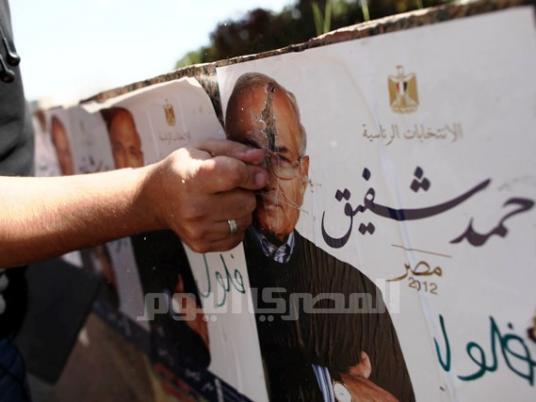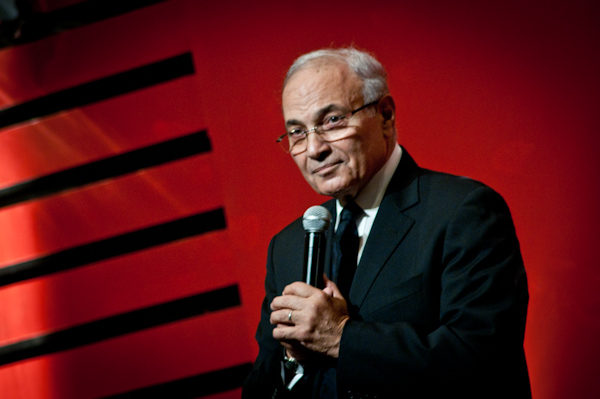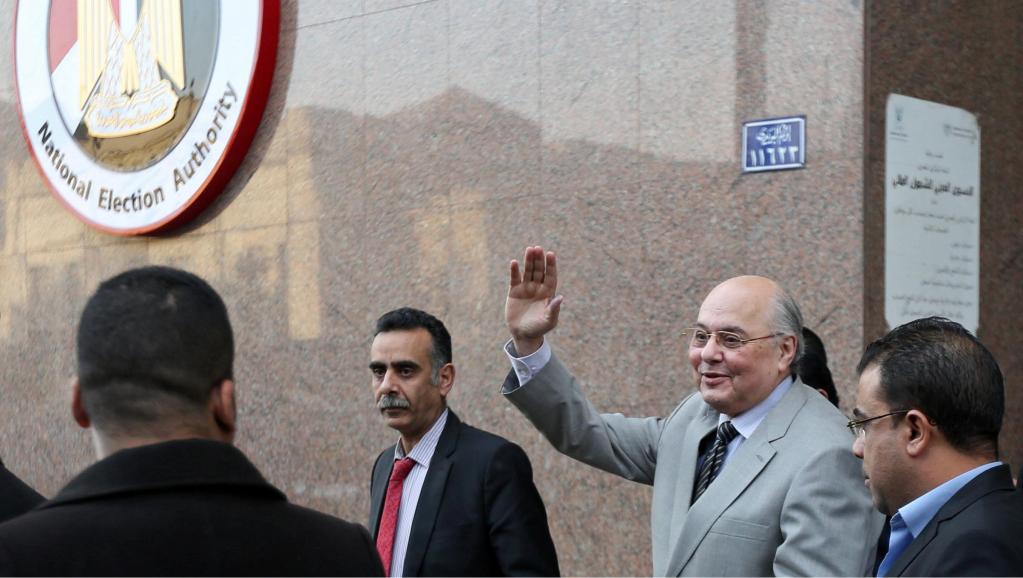
Ahmed Shafiq says he has the military and political experience needed to lead Egypt into a new democratic era, yet Hosni Mubarak's last prime minister has divided voters and drawn angry protests with his bid to become president.
Shafiq's supporters see his military background as guarantee he can restore order after 14 months of turmoil. Opponents see him as leftover from the old order and mock him as the "candy man" for once suggesting anti-Mubarak protesters should be offered sweets during demonstrations.
The former air force commander's campaign got off to a turbulent start. He was disqualified from the race this week on the basis of a law drawn up by his Islamist rivals, an announcement that came four days after his wife had died of cancer.
Then, in a dramatic U-turn less than 48 hours later, the election committee reinstated him, fuelling suspicions that he is the favourite candidate of the generals who have ruled Egypt since Mubarak was deposed in February 2011.
If he wins the first real presidential race in Egypt's history, he will continue a decades-long tradition of presidents who have come from top military posts. Mubarak was, like Shafiq, an air force commander, before he took the top job.
"You cannot suddenly bring a civilian man with no relation or knowledge of military life and make him a president and the supreme commander of the armed forces," he told Reuters in February, saying he could ensure a "smooth transition."
The vote is set for 23-24 May, with a run-off scheduled in June for the top two vote-getters. None of the 13 candidates is expected to win more than 50 percent of the votes and seal victory in the first round.
Egypt's army vows to hand over power on 1 July but analysts expect it to wield influence from behind the scenes for years.
"Civilians may be in a hurry and they think that as soon as the new president is elected he will act freely of the military. No, this will not be the case," Shafiq, 70, said in the interview.
Close ties
Though the military may be comfortable with a president who comes from their ranks, a Shafiq presidency could spark new unrest from those who harbour deep-seated suspicions about the army's role and fear it wants to hijack the uprising.
Banners featuring his picture are held up by demonstrators demanding that Mubarak-era politicians and officials — known by the Arabic term "feloul" meaning "remnants" — be excluded from public life.
Shafiq makes no secret of his close ties with the army.
"I have good relations with the field marshal," Shafiq told Reuters. He said he had spoken with Field Marshal Hussein Tantawi before making a final decision over his bid, though he didn't disclose what Egypt's military ruler had told him.
"They (the army) do want the transition to conclude. They do want to be out of frontline of politics," said a Western diplomat, adding that the army could be back restoring order if the streets flared up again. "It is not in their interest for there to be large-scale instability," the diplomat said.
Shafiq's presidential bid almost foundered because of a law that was passed by Egypt's new Islamist-dominated parliament that bars top officials from Mubarak's era, including former prime ministers, from the presidential race.
He was prime minister just over a month, appointed in the final days of Mubarak's rule as a last-ditch attempt to placate protesters. He lasted about three weeks after Mubarak fell.
He appealed against his expulsion on grounds the law was unconstitutional, and was reinstated pending a court's decision over the law's compliance with the constitution.
Shafiq, a straight-talker known for often wearing sweaters in public, has shrugged off his opposition: "I have looked at the CVs of other candidates and I was surprised that they dare run for president," he told an Egyptian television interviewer.
Shafiq's main rivals are Mohamed Morsy of the Muslim Brotherhood, a group that Mubarak and his government banned; Abdel Moneim Abouel Fotouh, a moderate Islamist seeking to win broad support; and Amr Moussa, the former Arab League chief and foreign minister.
In a military career spanning four decades, Shafiq served in wars with Israel and is credited with shooting down an Israeli aircraft in the 1973 war. He has pledged to uphold Egypt's peace deal with Israel, but criticizes Israeli policies.
"I object to Israel's current actions. But," he added, "I am a man who honors past agreements."
When he led the air force in the 1990s, Shafiq sought to acquire more advanced weapons and make the force more modern. But Egyptian officials say Washington, which provides Egypt with US$1.3 billion in annual aid in the wake of the peace deal with Israel, opposed some of the plans because of Israel's objections.
As minister of civil aviation, a post he held from 2002 to 2011, Shafiq won a reputation for efficiency as he successfully oversaw the modernization of state airline EgyptAir and improvements to the country's airports.



